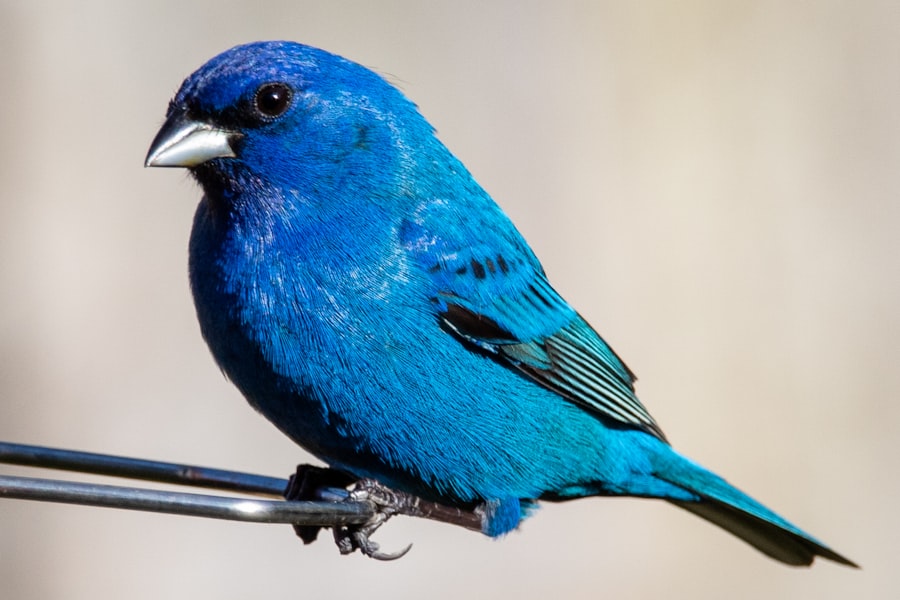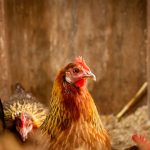Keeping chickens in the UK is subject to various legal limitations and regulations. Local councils may have specific rules regarding chicken ownership, including restrictions on the number of birds allowed and coop placement. It is essential to consult with the local authority before starting a chicken-keeping venture to ensure compliance with these regulations.
National guidelines also apply to chicken ownership in the UK. For instance, individuals with more than 50 chickens may need to register with the Animal and Plant Health Agency (APHA) and adhere to additional regulations aimed at preventing the spread of diseases such as avian influenza. Understanding and complying with both local and national regulations is crucial for avoiding potential fines and other legal consequences.
By adhering to these legal limitations, individuals can responsibly enjoy the benefits of keeping chickens while maintaining compliance with UK laws and guidelines.
Table of Contents
- 1 Factors to Consider When Determining the Number of Chickens
- 2 Space Requirements for Keeping Chickens
- 3 The Importance of Proper Care and Maintenance
- 4 Potential Issues and Challenges
- 5 Benefits of Keeping Chickens
- 6 Resources and Support for Chicken Keepers in the UK
- 7 FAQs
- 7.1 What are the regulations for keeping chickens in the UK?
- 7.2 How many chickens can I keep in my backyard in the UK?
- 7.3 Do I need to register my chickens with any authorities in the UK?
- 7.4 What are the housing requirements for keeping chickens in the UK?
- 7.5 Are there any restrictions on keeping chickens in urban areas in the UK?
Key Takeaways
- It is important to understand the legal limitations of keeping chickens, including local ordinances and regulations.
- Factors to consider when determining the number of chickens include available space, time commitment, and desired egg production.
- Space requirements for keeping chickens include a minimum of 2 square feet per bird in the coop and 8-10 square feet per bird in the outdoor run.
- Proper care and maintenance of chickens involves providing a balanced diet, regular health checks, and predator-proofing the coop and run.
- Potential issues and challenges of keeping chickens include noise, odor, and the risk of predators, as well as the commitment of time and resources required.
- Benefits of keeping chickens include a sustainable source of fresh eggs, natural pest control, and the opportunity for a rewarding hobby.
- Resources and support for chicken keepers in the UK include local poultry clubs, online forums, and government guidance on best practices for keeping chickens.
Factors to Consider When Determining the Number of Chickens
Space and Resources
When deciding how many chickens to keep, it’s essential to consider the amount of space you have available. Chickens need room to roam and forage, so you’ll want to ensure you have enough space for the number of chickens you plan to keep. Additionally, you’ll need to think about the amount of time and effort you can dedicate to caring for your chickens. Keeping a larger number of chickens will require more time and resources, so it’s crucial to be realistic about what you can manage.
Purpose and Goals
The purpose of keeping chickens is another important factor to consider. Are you primarily interested in having a fresh supply of eggs, or are you also interested in raising chickens for meat? The number of chickens you keep may vary depending on your goals.
Chickens are social animals and require companionship, so it’s essential to keep a large enough flock to prevent loneliness and social issues among the birds. By carefully considering these factors, you can determine the right number of chickens for your specific situation.
Conclusion
In conclusion, determining the right number of chickens for your flock requires careful consideration of several factors, including space, resources, purpose, and social dynamics. By taking the time to think through these factors, you can ensure a happy and healthy flock.
Space Requirements for Keeping Chickens

When it comes to keeping chickens, providing adequate space is essential for their health and well-being. The amount of space required will depend on several factors, including the breed of chicken, their age, and whether they will have access to outdoor space for foraging. As a general guideline, each chicken should have at least 1-2 square meters of space in their coop, with additional outdoor space for foraging if possible.
This will allow them to move around comfortably and engage in natural behaviors such as scratching and dust bathing. In addition to space within the coop, it’s important to provide outdoor space for your chickens to roam and forage. If possible, allowing them access to a secure outdoor area will provide them with additional space and enrichment.
This outdoor space should be protected from predators and provide access to fresh grass and insects for foraging. By providing adequate space both within the coop and outdoors, you can ensure that your chickens are able to exhibit natural behaviors and live healthy, happy lives. Providing adequate space is essential for the health and well-being of chickens.
The amount of space required will depend on factors such as breed, age, and access to outdoor space for foraging. As a general guideline, each chicken should have at least 1-2 square meters of space in their coop, with additional outdoor space if possible. This will allow them to move around comfortably and engage in natural behaviors.
Outdoor space should be secure and provide access to fresh grass and insects for foraging. By providing adequate space both within the coop and outdoors, you can ensure that your chickens are able to exhibit natural behaviors and live healthy, happy lives.
The Importance of Proper Care and Maintenance
Proper care and maintenance are essential for keeping chickens healthy and happy. This includes providing a balanced diet, clean water, and a clean living environment. Chickens require a diet that is high in protein and essential nutrients, so it’s important to provide them with a quality feed that meets their nutritional needs.
Additionally, access to clean water is essential for their health and well-being. Maintaining a clean living environment is also crucial for preventing disease and ensuring the overall health of your flock. This includes regularly cleaning the coop, providing fresh bedding, and ensuring good ventilation.
Regular health checks are also important for identifying any potential issues early on and seeking veterinary care when necessary. By providing proper care and maintenance, you can ensure that your chickens live healthy, happy lives. Proper care and maintenance are essential for keeping chickens healthy and happy.
This includes providing a balanced diet that meets their nutritional needs, access to clean water, and a clean living environment. Regular cleaning of the coop, providing fresh bedding, and ensuring good ventilation are crucial for preventing disease and ensuring overall health. Regular health checks are also important for identifying any potential issues early on and seeking veterinary care when necessary.
By providing proper care and maintenance, you can ensure that your chickens live healthy, happy lives.
Potential Issues and Challenges
While keeping chickens can be a rewarding experience, there are also potential issues and challenges that may arise. One common challenge is predator attacks, as chickens are vulnerable to predators such as foxes, rats, and birds of prey. It’s important to take measures to secure their coop and outdoor space to prevent predator attacks.
Another potential issue is disease management. Chickens can be susceptible to various diseases, so it’s important to practice good biosecurity measures and seek veterinary care when necessary. Additionally, managing waste can be a challenge, as chicken manure can build up quickly if not managed properly.
Finally, integrating new birds into an existing flock can be challenging, as established pecking orders may lead to aggression among the birds. It’s important to carefully introduce new birds and monitor their interactions to prevent any issues. While keeping chickens can be rewarding, there are potential issues and challenges that may arise.
Predator attacks are a common challenge, so it’s important to secure their coop and outdoor space to prevent attacks from animals such as foxes and birds of prey. Disease management is also important, as chickens can be susceptible to various illnesses. Managing waste can be a challenge as well if not managed properly.
Finally, integrating new birds into an existing flock can be challenging due to established pecking orders leading to aggression among the birds.
Benefits of Keeping Chickens

Fresh Eggs and Self-Sufficiency
One of the most significant benefits of keeping chickens is having a fresh supply of eggs. Homegrown eggs are not only delicious and nutritious, but they also provide a sense of self-sufficiency.
Education, Connection, and Pest Control
Keeping chickens can be an educational experience, providing opportunities to connect with nature. Many people find joy in caring for their flock and observing their natural behaviors. Furthermore, chickens can also provide natural pest control by eating insects in the garden, reducing the need for chemical pesticides.
Sustainable Gardening Practices
Their manure can also be used as fertilizer for gardens, contributing to sustainable gardening practices. Overall, keeping chickens can provide numerous benefits, including a fresh supply of eggs, opportunities for education and connection with nature, natural pest control in the garden, and sustainable gardening practices through the use of chicken manure as fertilizer.
Resources and Support for Chicken Keepers in the UK
For those interested in keeping chickens in the UK, there are numerous resources and support available. Local poultry clubs or associations can provide valuable information and support for new chicken keepers. These organizations often host events such as poultry shows or workshops where members can learn from experienced chicken keepers.
Additionally, there are many online forums and communities dedicated to chicken keeping where members can ask questions, share advice, and connect with other chicken enthusiasts. Furthermore, there are numerous books and online resources available that provide comprehensive information on all aspects of chicken keeping including breed selection, housing requirements, nutrition, health care, and more. Overall, there are many resources and support available for chicken keepers in the UK including local poultry clubs or associations, online forums and communities dedicated to chicken keeping, as well as books and online resources providing comprehensive information on all aspects of chicken keeping.
In conclusion, keeping chickens in the UK requires an understanding of legal limitations as well as careful consideration of factors such as space requirements and proper care and maintenance. While there are potential issues and challenges associated with chicken keeping, there are also numerous benefits including a fresh supply of eggs, opportunities for education and connection with nature, natural pest control in the garden, and sustainable gardening practices through the use of chicken manure as fertilizer. Fortunately, there are many resources and support available for chicken keepers in the UK including local poultry clubs or associations, online forums and communities dedicated to chicken keeping, as well as books and online resources providing comprehensive information on all aspects of chicken keeping.
By taking advantage of these resources and carefully considering all aspects of chicken keeping, individuals can enjoy the many rewards that come with raising their own flock of chickens.
If you’re wondering how many chickens you can keep in the UK, you may also be interested in learning about the ideal floor for a chicken coop. Poultry Wizard has a helpful article on the topic, discussing the importance of choosing the right flooring for your chickens’ living space. You can read more about it here.
FAQs
What are the regulations for keeping chickens in the UK?
In the UK, there are regulations regarding the number of chickens you can keep, as well as guidelines for their welfare and housing. These regulations are in place to ensure the well-being of the chickens and to minimize any potential nuisance to neighbors.
How many chickens can I keep in my backyard in the UK?
The number of chickens you can keep in your backyard in the UK varies depending on the local council regulations. In general, most councils allow for a small number of chickens, typically around 4-6, but it’s important to check with your local council for specific guidelines.
In the UK, you do not need to register your chickens if you are keeping them for your own use and not for commercial purposes. However, if you have 50 or more chickens, you will need to register with the Animal and Plant Health Agency (APHA) as a poultry keeper.
What are the housing requirements for keeping chickens in the UK?
Chickens in the UK must be provided with suitable housing that protects them from predators, adverse weather conditions, and provides adequate space for their well-being. The housing should also allow for easy cleaning and provide access to food and water.
Are there any restrictions on keeping chickens in urban areas in the UK?
Some urban areas in the UK may have restrictions on keeping chickens, such as limits on the number of chickens allowed or specific guidelines for coop placement. It’s important to check with your local council for any specific restrictions in your area.
Meet Walter, the feathered-friend fanatic of Florida! Nestled in the sunshine state, Walter struts through life with his feathered companions, clucking his way to happiness. With a coop that’s fancier than a five-star hotel, he’s the Don Juan of the chicken world. When he’s not teaching his hens to do the cha-cha, you’ll find him in a heated debate with his prized rooster, Sir Clucks-a-Lot. Walter’s poultry passion is no yolk; he’s the sunny-side-up guy you never knew you needed in your flock of friends!







